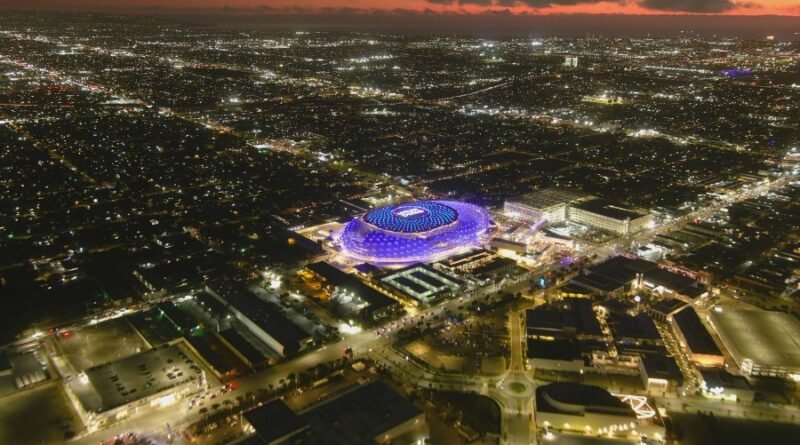After people mover plans fall through, Inglewood pivots to dedicated bus lanes for transit connections
The city of Inglewood is making a detour in its plans to increase connectivity between local transit hubs and the city’s burgeoning sports and entertainment district.
On Tuesday, city officials announced it would be reimagining the Inglewood Transit Connector from an elevated, fully automated people mover concept into a smaller scale improvement project highlighted by dedicated bus lanes.
“Over the next few years residents and visitors can expect new mobility hubs, bus-only lanes, new bike infrastructure, improved traffic flow, and walkability upgrades to serve events,” the city’s dedicated project website reads.
The Inglewood Transit Connector project, in its people mover form, was meant to connect the Downtown Inglewood Metro station on the K Line with the bustling and rapidly developing area where SoFi Stadium, YouTube Theater, Intuit Dome and the Kia Forum can be found.
But challenges from local officials, potentially displaced business owners, owners of the Los Angeles Rams and Clippers, and U.S. Rep. Maxine Waters, stopped the project from getting off the ground, leading to its ultimate cancellation.
Now city officials say there’s a new plan that will come with a lower price tag and fewer affected businesses.
“With the world watching us as we prepare to host the 2028 Olympics, we’re also looking inward—listening to our community and taking strategic steps to deliver on what matters most to the people who live and work here,” Inglewood Mayor James T. Butts said in a news release.
Butts said the community response was clear that Inglewood residents and business owners want traffic relief and connected, walkable neighborhoods that revitalize the downtown area.
But now the focus is on an “incremental” approach to improve city connectivity.
Phase 1 of the revamped project will focus on improvements along downtown Market Street, with storefront upgrades, mobility hubs linking to Metro’s K and C lines, shuttle services, bus-only lanes and “enhanced smart traffic technology.”
The phasing strategy, officials said, will help provide traffic relief and neighborhood improvements ahead of the 2028 Olympics, while minimizing construction disruption near Prairie Avenue.

While those improvements are meant with the Olympics in mind, the city hasn’t entirely ruled out its original plan. City leaders said the first phase would lay the groundwork for expansion, including, possibly, a high-capacity automated people mover in the future.
This new phased plan reduces the number of potential businesses affected from 44 to 23, and those displaced could receive relocation assistance and other grant funding for their trouble.
Inglewood City Councilmember Alex Padilla said the goal of the revised plan isn’t just to “minimize disruption,” but also provide resources and tools to help businesses “stay rooted right her in Inglewood.”
A contract has been authorized with Elevate Inglewood Partners to begin design activities. Public engagement on the project, including design elements, pedestrian safety and mobility hubs will continue throughout 2025, officials said.
The original plan for the Inglewood Transit Connector was awarded more than $1 billion in federal funds from the Biden Administration. It’s unclear if those funds will still be awarded to Inglewood with the project’s revised blueprint, or with the Trump Administration canceling previously allocated grants for select transit projects across the country.
The latest updates can be found here.



